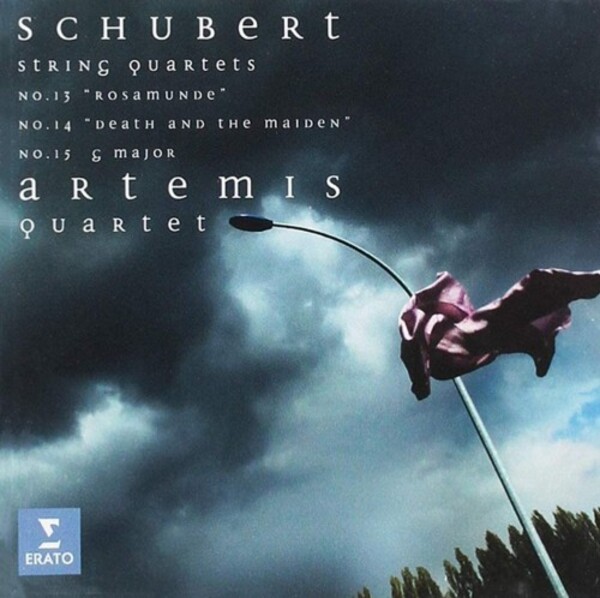
Schubert - String Quartets
£13.25
Usually available for despatch within 5-8 working days
Despatch Information
This despatch estimate is based on information from both our own stock and the UK supplier's stock.
If ordering multiple items, we will aim to send everything together so the longest despatch estimate will apply to the complete order.
If you would rather receive certain items more quickly, please place them on a separate order.
If any unexpected delays occur, we will keep you informed of progress via email and not allow other items on the order to be held up.
If you would prefer to receive everything together regardless of any delay, please let us know via email.
Pre-orders will be despatched as close as possible to the release date.
Label: Erato
Cat No: 6025122
Format: CD
Number of Discs: 2
Genre: Chamber
Release Date: 6th June 2012
Contents
About
Awarded both Germany‘s prestigious Klassik ECHO award and France’s Grand Prix de l’Académie Charles Cros in 2011 for their Virgin Classics Beethoven cycle, the members of the Artemis Quartet now presents Schubert's final three string quartets: No.13 in A minor, ‘Rosamunde’ (which draws on his incidental music for Helmina von Chezy’s play Rosamunde); No.14 in D minor, ‘Death and the Maiden’ (with its haunting second movement based on his song Der Tod und das Mädchen), and No.15 in G major.
Schubert and Beethoven were contemporaries in Vienna, and Beethoven is reputed to have returned some of the younger composer’s admiration, but, as Eckart Runge points out: “In some senses, Beethoven and Schubert could hardly be more different.” He goes on to say that “The Artemis Quartet’s intensive experience of performing and recording the Beethoven cycle between 2009 and 2011 has provided new perspectives on every other quartet we play. There is an almost terrifying modernism in these three late Schubert quartets, but it is totally different from the modernism of Beethoven. And, when placed together in a programme, the three quartets shine in another light: No 14 is concentrated and dramatic; No 15 is huge, symphonic, and cosmic, and No 13 is introspective and melancholy – less spectacular than the other two."
“Schubert has an incredible simplicity, while Beethoven’s quartets are more elaborately structured”, he continues. “The genius of Schubert’s simplicity comes from the lied – fundamentally, Schubert thinks in terms of a singing melody over a bassline and a harmonic accompaniment. That approach is rarely found in Beethoven’s quartets, which are packed with themes, counter-themes, motifs and structural elements. Schubert’s writing holds its own challenges: his purity, his focus on a single idea, means that the music is reduced to the essence of expression. You would expect that simple conception to presuppose a short form, but he succeeds in creating lengthy works … The G major quartet lasts 50 minutes!”

Error on this page? Let us know here
Need more information on this product? Click here